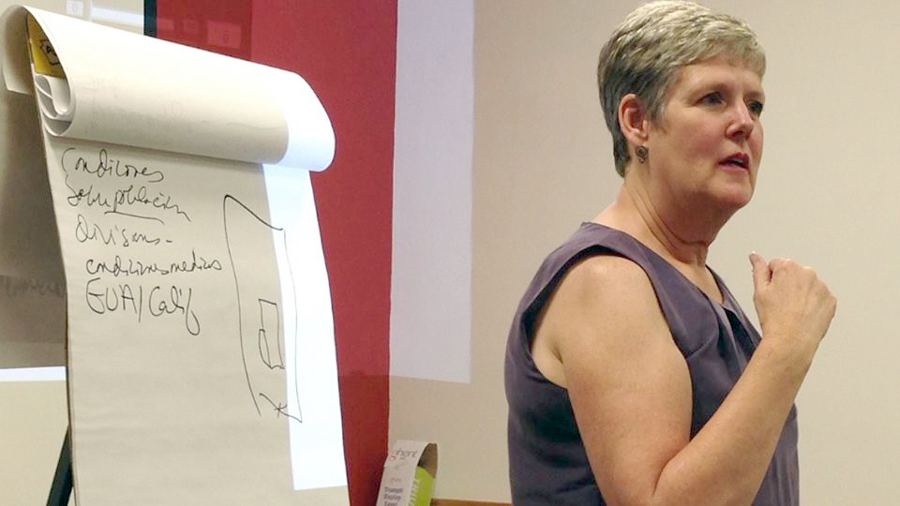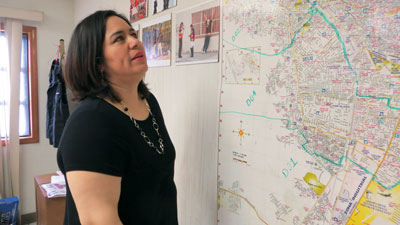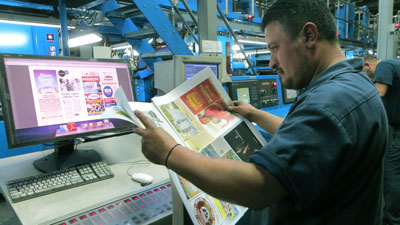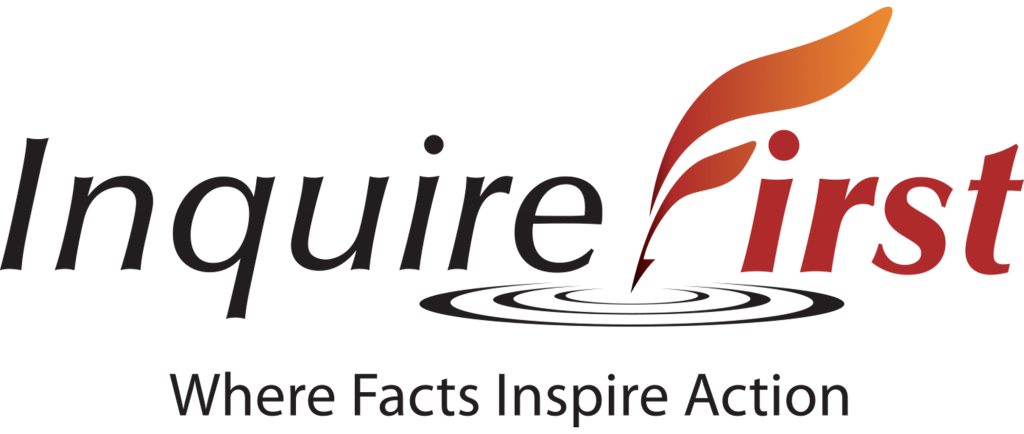
Executive Director Lynne Walker meets with reporters and editors on journalist safety in Ciudad Juárez
CIUDAD JUAREZ, Mexico — InquireFirst Executive Director Lynne Walker met with reporters and editors in Ciudad Juarez, Chihuahua, on May 15-16, 2017, to instruct a two-day workshop on investigative journalism and journalist safety.
In Ciudad Juarez, more than 30 investigative reporters and editors from the city’s leading print, radio and television outlets participated in six hours of interactive training led by Walker.
During the first session of the workshop organized by the Public Affairs Section of the U.S. Consulate in Ciudad Juarez, Walker shared techniques for gaining access and finding sources. The second and final day of the workshop, Walker led a training exercise on interview techniques and organizing and writing an investigative story.

A key focus of the workshop was journalist safety. According to the Committee to Protect Journalists (CPJ), Mexico is one of the deadliest countries in the world for journalists. On the list of the world’s deadliest places to be a reporter, Mexico falls between the war-torn nation of Afghanistan and the failed state of Somalia. Last year, 11 Mexican journalists were killed, the country’s highest tally this century, the New York Times reported.
March was the worst month on record for Mexico, according to Article 19, a group that tracks crimes against journalists worldwide. At least seven journalists were shot across the country in March — outside their front doors, relaxing in a hammock, leaving a restaurant, out reporting a story, according to the Times.
On May 15, Javier Valdez, an award-winning reporter whose coverage focused on drug trafficking and organized crime, was shot to death in the northern state of Sinaloa outside the offices of the publication he co-founded, Rio Doce.
During a private breakfast with news directors from El Diario, the leading newspaper in Ciudad Juarez, Radiorama and Net Multimedia, Walker listened as they desctibed the challenges faced by news organizations in the border city. During the discussion, the news directors agreed to begin convening regular meetings to strengthen journalism in Ciudad Juarez.
In the newsroom of El Diario, Walker met with Editorial Director Rocio Gallegos to talk about ways that investigative journalism organizations such as El Diario and InquireFirst can work together on cross-border stories.
The Investigative Journalism & Journalist Safety workshop resulted in two important takeaways for editors and reporters. First, they agreed to talk with top directors at their news organizations about implementing safety protocols. Second, they discussed inviting an international organization such as Article 19 to Ciudad Juarez to provide training sessions on protocols and journalist safety.

The workshop also served to encourage reporters and editors to keep striving for excellence in their reporting. Journalist Gustavo Cabullo described the workshop as demonstrating “the art of weaving a good story.” In a Facebook post during Walker’s workshop, Cabullo wrote, “today she reminds us of the excitement of a good story, of producing excellent journalism.”
The Ciudad Juarez workshop is the first in a series of professional training workshops that Walker will lead this year in Latin America. In June, Walker will spend two weeks working with journalists in Honduras and Guatemala on investigative reporting techniques. In October, she will organize and direct the 2017 Latin American Edition of the Jack F. Ealy Science Journalism workshop in San Francisco, Calif. And in November, Walker will travel to Bolivia to work with journalists in La Paz.
In the Honduran city of Tela on the north Caribbean coast, Walker will lead a two-day workshop on accurate sourcing and on producing thorough, balanced investigative journalism that results in greater transparency and good governance. During her trip to Honduras, Walker will conduct workshops in San Pedro Sula and Tegucigalpa.
Walker will also travel to Quetzaltenango and Cayala, Guatemala to share tools and techniques for investigative journalism with reporters, editors and university students. The workshops are being organized by the Public Affairs Section of the U.S. Embassy in Honduras and the U.S. Embassy in Guatemala.
